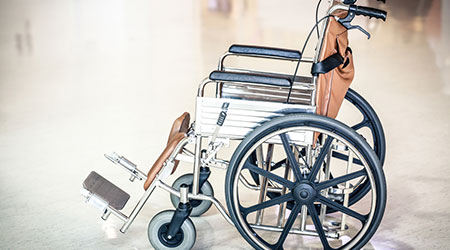Location-based intelligence, leveraging Real-Time Location Systems (RTLS) has existed for some time. Manufacturers employ it to provide visibility into their own supply chain, carefully tracking items as they enter and leave the facility. And now, more than ever, we use this type of technology in our personal lives, with apps that help show us where our family members are—and even how fast they are driving.
That’s why today’s hospitals — laser focused on efficiency, quality, and most importantly, safety — are employing location-based intelligence across their organizations.
More than providing simple search-and-find functionality, an enterprise location-based intelligence system reveals additional layers of insight to elevate care coordination and drive operational efficiency. When fully mature, these enterprise deployments are leading to better staff engagement, bottom-line enhancements, and delighted patient experiences. It works on a granular level, automatically observing clinical activity and recording data that may be used for everything from identifying potential infectious contacts, to triggering and escalating alerts when staff are in duress (or in need of assistance).
It often starts with equipment
Searching for equipment is a consistent facility-wide challenge, and a major patient safety risk caused by distraction and delays in care delivery as staff hunts for missing items. While tracking is made easier through enterprise asset management solutions, they may be greatly enhanced through additional integration with a location-based intelligence deployment, minimizing the search process and revealing an insightful real-time view into equipment location, status, time in location, proximity, and par level.
Location-based intelligence excels far beyond simply knowing where equipment is currently located, providing access to more-in-depth information to improve operations, mitigate risks, and avoid injury. For example, the technology alerts when equipment accumulating in hallways risks violation of Joint Commission standards, or when non-sterile equipment is detected entering patient rooms.
The maintenance of temperature sensitive equipment has long been a manual and burdensome process for staff. However, this distracting and non-value-added task is easily handled by location-based intelligence in a consistent, proactive way. It provides minute-to-minute monitoring refrigerators, freezers, and warming cabinets, all of which are crucial to preserving pharmaceuticals, blood, and other biological specimens.
Focus on safety
More than a system to manage the facility’s assets, location-based intelligence is impactful in supporting the mission of patient and staff safety. In an environment leveraging location-based intelligence, patients may also be assigned badges that show the patient’s current status in a care delivery process or can be configured to alert when outside designated patient care areas or care delivery parameters. When staff and caregivers are equipped with badges, these systems also provide peace of mind by allowing staff to activate an emergency alert, such as when they are threatened with violence or need assistance.
In the event a patient tests positive for a contagious disease, staff can leverage the data from a location-based intelligence software solution to provide reporting and tracing into the locations, patients, staff, and equipment with which the infected patient came into contact. Care providers can then use this information to take appropriate actions to isolate, decontaminate, and quarantine anyone potentially exposed to that contagion or infection.
Optimizing patient care
In addition to the safety afforded to staff and patients, one of the most expansive benefits of location-based Intelligence is optimizing care. In today’s hectic, often complex, hospital environment, location-based intelligence adoption facilitates a culture of learning, improving, and unprecedented insights into the orchestration of care.
It does so by offering a unified lens into medical equipment, patients, and staff across the facility to ensure they are all in the right place at the right time. Even better, the capture of real-time, location-based intelligence is achieved without further burdening staff or disrupting existing systems. This is increasingly important as hospitals work to differentiate themselves in the face of increasing competition from both traditional and nontraditional players, outcomes-based reimbursements, and staffing shortages.
Location-based intelligence supports safety across the care continuum by providing awareness of:
• Patients and staff needing assistance
• Patient infections and contact tracing
• Delays and bottlenecks in patient care delivery
• Medical equipment preventative maintenance and recall management
Shane Waslaski is the Vice President and General Manager of Location-Based Intelligence for Infor.

 What 'Light' Daily Cleaning of Patient Rooms Misses
What 'Light' Daily Cleaning of Patient Rooms Misses Sprinkler Compliance: Navigating Code Mandates, Renovation Triggers and Patient Safety
Sprinkler Compliance: Navigating Code Mandates, Renovation Triggers and Patient Safety MUSC Board of Trustees Approves $1.1B South Carolina Cancer Hospital
MUSC Board of Trustees Approves $1.1B South Carolina Cancer Hospital Study Outlines Hand Hygiene Guidelines for EVS Staff
Study Outlines Hand Hygiene Guidelines for EVS Staff McCarthy Completes $65M Sharp Rees-Stealy Kearny Mesa MOB Modernization
McCarthy Completes $65M Sharp Rees-Stealy Kearny Mesa MOB Modernization